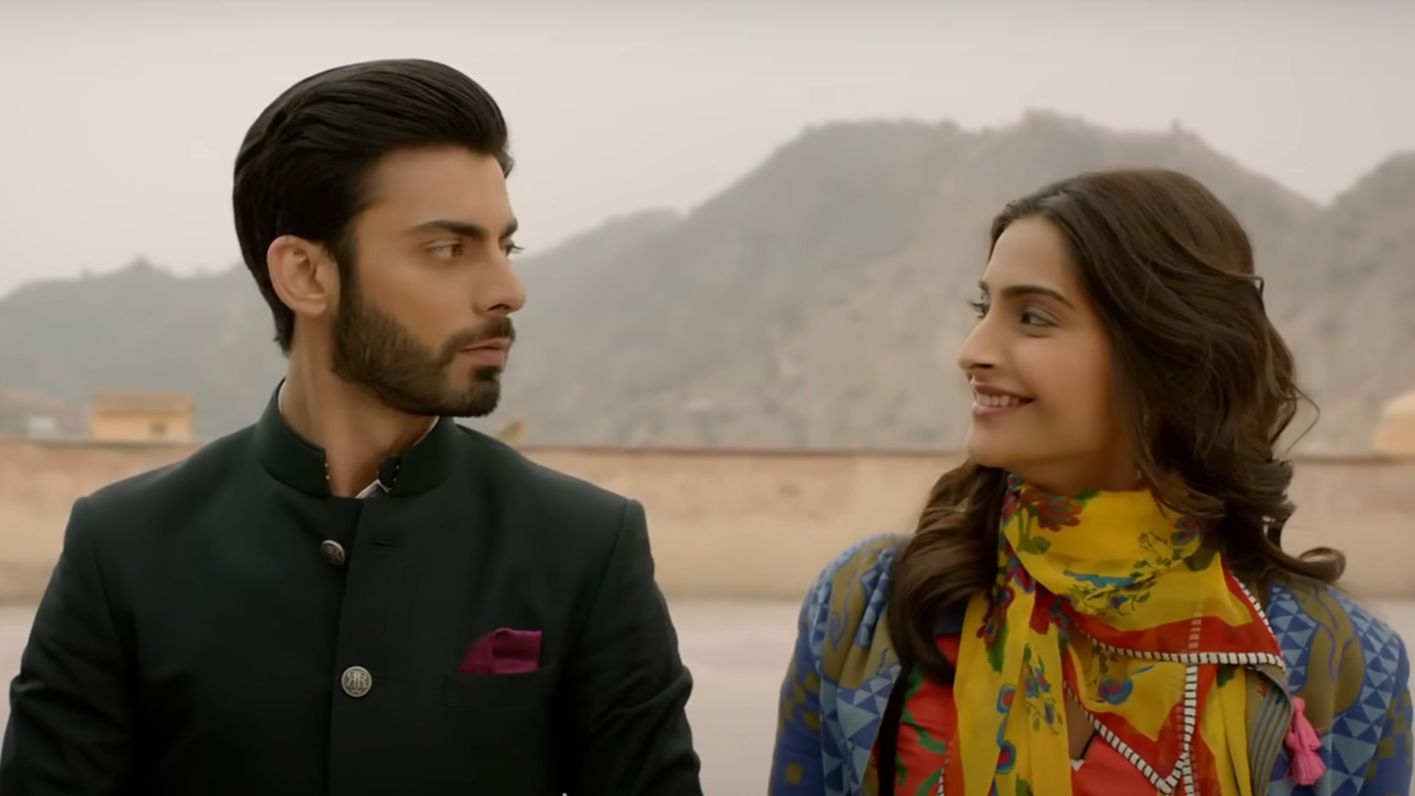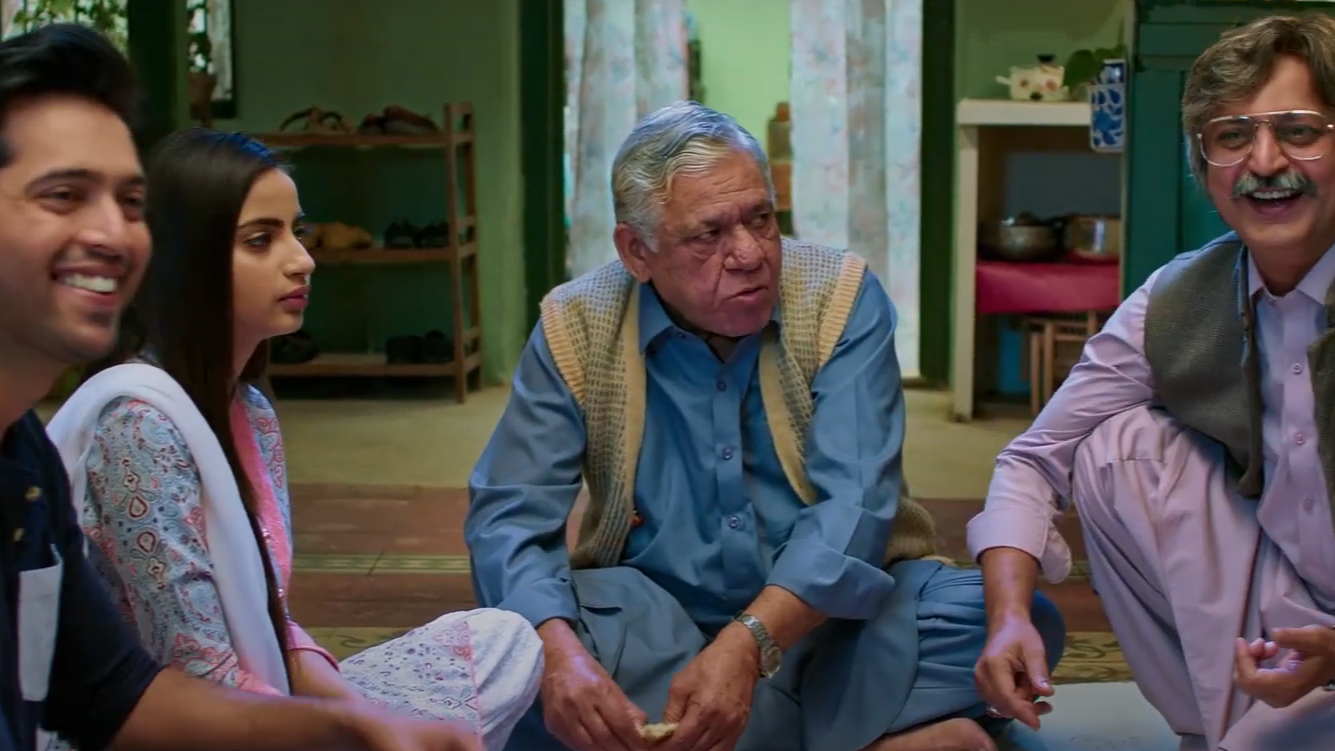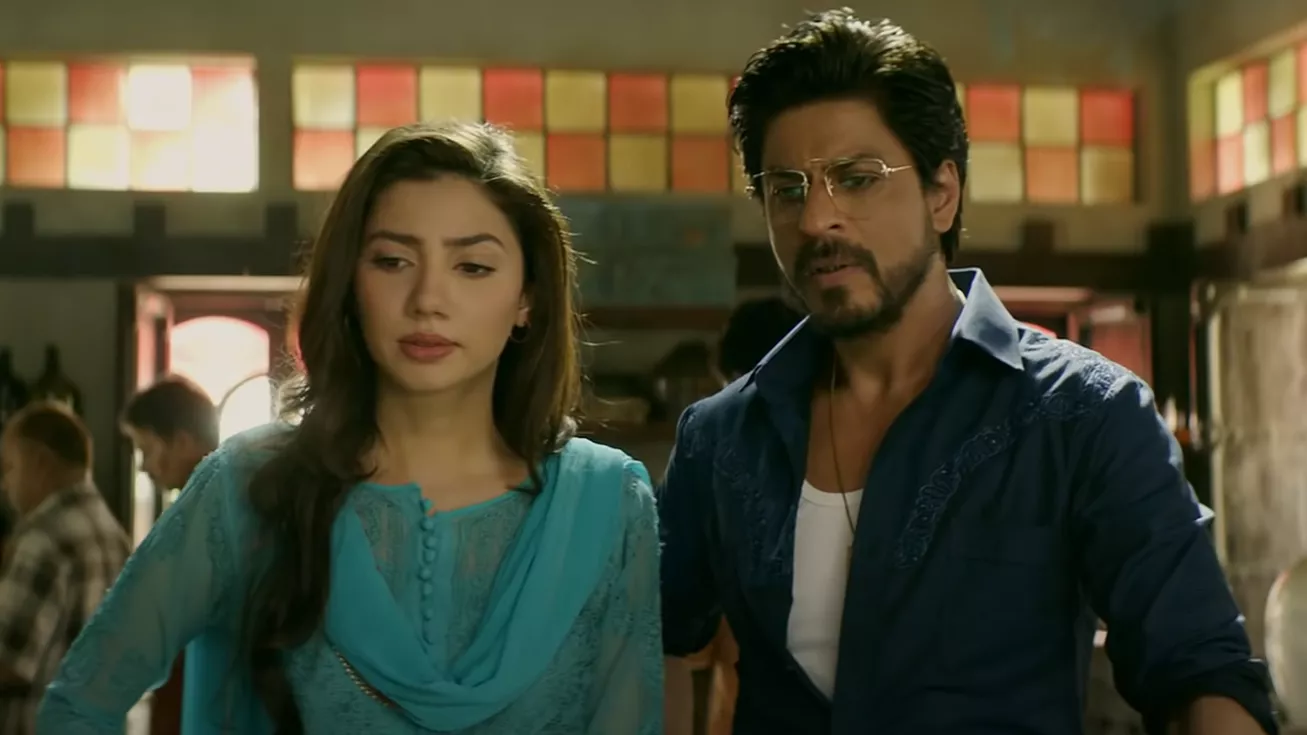When multi-industry talents took over the spotlight beyond borders
Pakistan and India's big-screen collaborations that are for the history books
KARACHI:In a recent interview with Mashable India, Raees' director Rahul Dholakia put speculations to rest and clarified why he hired Mahira Khan as the female lead in his film. According to Rahul, the role required a Muslim girl from the '80s who could speak clear Hindi with a "twang of Urdu", and whose charm had an innocent touch to it.
It's safe to say that our Mahira made the cut because she qualified for the role in every aspect. Plus, as the director mentioned, she was also the pick of his and Gauri Khan's mothers. And as fate would have it, Mahira just happened to be promoting a different project in Bombay at the time. Once Rahul set eyes on her audition, he knew he had found his Aasiya.
It is important to note that there was no stubbornness involved in this casting, and the Humsafar actor was simply a conscious choice, one that was prompted by the mothers of the executives. These mothers, who had watched the actor's performance in serials before, casually set in motion the big-screen pairing of a lifetime.
Pakistanis making strides in India

The director wasn't the only one with praises to dispense. Mahira received a wealth of kind words from co-star Shah Rukh Khan, who slid his way into ceaseless questions directed at Mahira about Raees being a career-altering opportunity for her as she got to work with the King Khan himself.
"I would like to clarify that most young female actors who first worked with me marked their debuts with those films, or had worked in a different industry prior to that. But Mahira is an established actor in her own right, and has made a name for herself after years of working in Pakistan. So with all due respect, working with me doesn't make her any more of an actor," Shah Rukh said in a video of a press conference uploaded to YouTube by the channel Movie Talkies.
Respect is a two-way street, and the fact that the legendary SRK emphasised upon it himself is crucial in understanding why the entertainment world makes these creative choices. Raees struck gold with Mahira's demure performance, given that the actor has honed her skills through similar roles in her native industry.
This film, however, isn't the only example of a renowned Pakistani actor stepping into Bollywood. The most notable example has to be Javed Sheikh, who has recurrent cameos in well-known films, and then Fawad Khan, who struck the hearts of Indian fans with his awe-inspiring lead performances as well as he did ours. Truly, he deserves no less than the role of a prince as his Bollywood debut.
From a reserved royal heartthrob to a secretive brother to a suave musician, Fawad's career trajectory in Bollywood cannot be pinned to a typical case of typecasting. Traversing internationally has enabled him to expand not just his profession but his acting range as well.
This enabled a step further west for the 42-year-old actor, who was later casted in Ms Marvel for a role paying homage to his ancestral roots. It is only poetically befitting for his Humsafar co-star to earn further international renown by a similar dip in the world of Bollywood.
And of course, their expanding fame is due in part to the Pakistani drama that earned them both worldwide recognition. If Mahira hadn't won the hearts of Indian mothers from her acclaimed spot in Pakistan, or if Fawad's talents had gone unnoticed on television screens, the two might not have made it this far.
Reciprocating with open arms

Although Bollywood is no easy feat to accomplish, that fact doesn't diminish the integrity of our very own entertainment industry—one that has been a player in the game for longer than some of us were even born. And it is this cross-border familiarity that has sprouted between the entertainment worlds of Pakistan and India that has welcomed our neighbours over with similar enthusiasm.
This is an appropriate time as any to recall Naseeruddin Shah's minor yet remarkable performance in Pakistani thriller film Khuda Ke Liye. During an interview with IANS, he confessed to not fully agreeing with his own character's views yet being convinced of the role due to the powerful storytelling backing it.
Those of us acquainted with relatively modern films are better aware of Om Puri's sombre supporting role in Actor in Law. Although the actor had many witty remarks for the film's director while speaking at the launch, he also praised Nabeel Qureshi's work ethic, especially when it came to pushing the crew to perform their best.
Since the actor's tragic passing in 2017, a number of his Pakistani peers offered their tributes on social media, including Actor in Law star Fahad Mustafa who described his late senior as someone who "won the hearts of people across the border". Given the bittersweet nature of these words, inter-border artist interaction is generally testament to the fact that the craft itself holds precedence over all differences.
However, reservations are not so easy to overcome. Sometimes, even artistry cannot defy pre-set boundaries. That can be seen in the case of cinema-specific bans imposed on films in both nations. Whatever one's views may be regarding the entertainment produced by the neighbouring country, it is clear that many enjoy films from both countries.
There isn't brain-numbing science involved in this phenomenon, as some might expect. The logic is as simple as this: the two industries' shared creative choices take from elements that are culturally aligned. We may not read the same, yet we hardly need subtitles when it comes to understanding one another.
Our films are embedded in immersive diegetic music that has audiences swaying long after the film is over—be it at elaborate wedding events or in the privacy of one's room. Whether it is a gut-wrenching Aamir Khan film or the comic expertise of Fahad Mustafa, our connection to tales of romance and family is one that has survived the test of time for decades on end.
So even if differences are too glaring to be denied notice, another force that cannot be ignored is the combined power of both Pakistani and Indian cinemas to bring loved ones together, for the world of the screen knows no dividing line.
Have something to add to the story? Share it in the comments below.


COMMENTS
Comments are moderated and generally will be posted if they are on-topic and not abusive.
For more information, please see our Comments FAQ